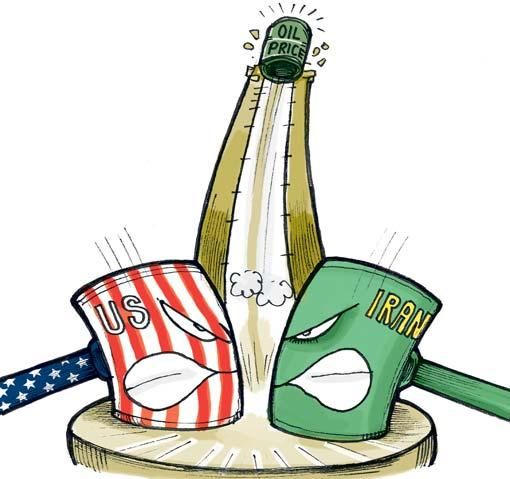The Organisation of Petroleum Exporting Countries (Opec) holds its third summit in Riyadh, Saudi Arabia tomorrow. The summit comes at a critical time; against the backdrop of increasing oil prices and heightened tension in the Gulf region.
Over the next few weeks, oil is likely to break the $100 per barrel mark - a price that would further increase the revenues of the producing countries but will also put extra burden on the economies of consuming nations; rich and poor alike.
The Opec summit will discuss the price issue and its impact on the world economy but will discover instantly that it has little power to moderate the prices in the international market.
Even Opec leader Saudi Arabia won't be able to affect the prices this time notwithstanding its spare production capacity, accounting for 2.5 million barrel a day. The increase in oil prices is not linked to a shortage of supplies, but is the direct effect of the stand-off between Iran and the US.
The reliable flow of oil from the Gulf region has always been the key factor for a stable oil market and a vital interest for the United States and the world at large.
The Gulf countries Saudi Arabia, Kuwait, the UAE, Qatar, Iraq and Iran have huge oil and natural gas reserves, accounting for two-thirds of the world's oil.
Around 40 per cent of internationally traded oil is shipped through the Strait of Hormuz. The outbreak of hostilities between Iran and the US, even the slightest incident between the two countries, would lead almost automatically to the closure of the vulnerable Strait.
Over the past few months, Iran has repeatedly threatened that it will bring oil supplies in the Gulf to a halt in the event of a US attack against its nuclear facilities.
Indeed, the United States does not depend solely on Middle Eastern oil, as it imports much of its energy needs from countries such as Canada, Mexico, Venezuela, and Nigeria. Yet, given the huge share of Arabian oil in the world economy, the disruption of oil supplies from the Gulf will drive the prices to unprecedented high level, affecting the whole market.
Historically, peaks in oil price have been the results of political crises in the Middle East: the 1973 Arab-Israeli War, the 1979 Islamic Revolution in Iran, the Iran-Iraq War, the Iraqi invasion of Kuwait, and the 2003 US invasion of Iraq.
In most of these occasions Opec, or key members of Opec, was able to increase production and hence moderate the prices. This time Opec seems helpless.
Challenges
Over the past few decades, Opec members have done little to increase their production capacity, withering away their ability to control the oil market.
Instead of using their oil exports, which nearly doubled in value between 2003 and 2006, to develop their oil industry, Opec members have used most of their revenue to repay government debts and buy western weapons.
As a result of inadequate investment in the oil sector, Russia replaced Saudi Arabia as the biggest oil producer this year.
While Opec production capacity has dwindled, or at least stagnated, oil consumption increased world-wide. The recent spikes in oil prices are partly attributed to the rising consumption of countries like India and China, which in turn reflects their remarkable economic growth.
During the Riyadh summit, Opec will address these issues and try to reassert its influence in the oil market. Success will depend; however, on how the organisation will tackle the challenges it faces over the next few months.
Dr Marwan Kabalan is a lecturer in media and international relations, Faculty of Political Science and Media, Damascus University, Syria.









